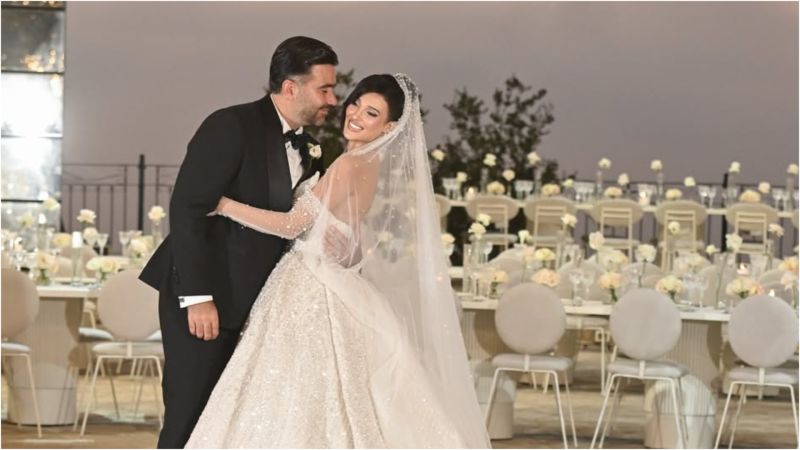Former Miss Algeria Chanez Belaid has responded to intense online speculation and controversy following the emergence of photos and videos showing her wedding ceremony held in a Christian church in Lebanon.
The images, which quickly spread across various social media platforms, sparked debate and criticism over the nature of the ceremony. Belaid, who is a practicing Muslim, was seen in a traditional white gown participating in what appeared to be a Christian religious service. Her husband is reported to be a Lebanese Christian businessman, further fuelling speculation about a possible conversion.
Many users questioned whether Belaid had converted from Islam to Christianity, prompting widespread debate across the Arab world, particularly in Algeria, where the former beauty queen enjoys a significant following.
In response to the rumours, Belaid took to her official social media accounts to issue a short but clear statement. She affirmed that she remains a Muslim and that her faith has not changed. She called on the public to respect her privacy and refrain from drawing conclusions based on assumptions about her personal choices.
“I am a Muslim and I remain one. My marriage does not affect my beliefs. Please respect my privacy,” she wrote.
The 28-year-old rose to prominence after being crowned Miss Algeria and later went on to win the title of Miss Arab Tourism, gaining international attention for her elegance, poise, and advocacy for cultural exchange.
She currently boasts over 1.2 million followers on Instagram, where she frequently shares content related to fashion, beauty, and lifestyle. Her wedding, however, marked a shift in tone from her usual posts, as criticism mounted and fans demanded answers.
Supporters of Belaid have also rallied to her defence, arguing that the backlash highlights the challenges faced by women in the public eye in navigating personal and cultural boundaries. Many praised her for handling the situation with dignity and restraint, choosing not to engage in further debate.
The ceremony itself, according to Lebanese media, was a private affair, attended by close friends and family. Neither the groom nor his family have commented publicly on the religious aspects of the marriage.
While interfaith marriages are not uncommon in Lebanon, where multiple religious communities coexist, such unions can draw criticism in countries with more conservative social norms.
This incident has once again highlighted the complex intersection of faith, culture, and public scrutiny, particularly for celebrities in the Arab world. Belaid’s calm response and insistence on privacy reflect an increasingly common stance among public figures who find themselves under the spotlight in the digital age.
As the debate continues, Belaid remains focused on her work and public engagements, appearing unfazed by the controversy. Her message, though brief, has been interpreted as a firm reminder that personal faith and public perception are not always aligned—and that respect for individual choices remains essential in a globalised world.

